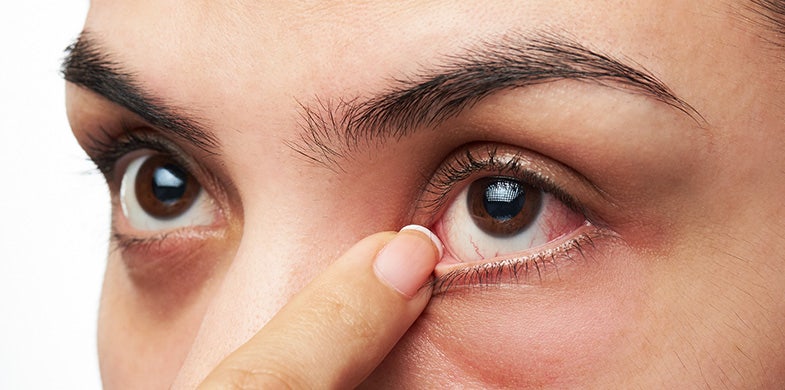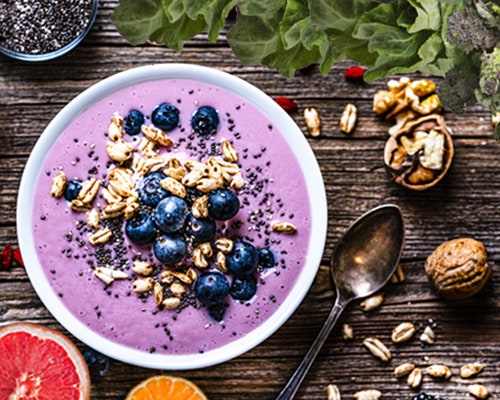See What Causes and Relieves Dry Eyes
- 8/12/19


by Tracey Pollack
According to the Mayo Clinic, dry eyes are a common condition caused by a lack of enough tears. See, your tears are made up of a combination of water, fatty oils and mucus. This mixture allows the surface of your eyes to stay clear and smooth, while also protecting your eyes from infection. When your body doesn’t produce enough tears, your eyes are left high and dry. And you’re left with stinging, burning, itchy and irritated eyes. And somehow despite its name, dry eyes can also create too many tears, explains WebMD. But since they fail to act like real tears, they don’t moisten your eyes properly. Many different factors can contribute to dry eyes, so let’s focus on the causes to bring relief in sight.
The Age of Dry Eyes
With age comes wisdom, but it also brings dry eyes. The condition is a result of the natural aging process, with most people over age 65 suffering from the symptoms. In addition, dry eyes are increasingly common in women after menopause, most likely due to major hormonal changes.
Medication Complications
Who knew that medication to treat one condition could actually be causing another! It turns out that a variety of different medicines can also lead to dry eyes, suggests the American Academy of Ophthalmology (AAO). These medications are very common, so one may be the cause of your problem. The long list includes:
- Beta-blockers, which are prescribed for heart problems or high blood pressure
- Diuretics for high blood pressure
- Allergy and cold medications
- Heartburn remedies
- Antidepressants
- Anxiety medicines
- Sleeping pills
If you take any of these medications by prescription or over the counter, you may want to look into alternatives with your healthcare provider.
The Cause and (Side) Effect
According to the National Eye Institute, your dry eye may be the unexpected result of a serious medical disorder, such as diabetes, rheumatoid arthritis, lupus, thyroid disorders, Sjogren's syndrome, scleroderma or vitamin A deficiency. If you suffer from one or more of these conditions, see your healthcare practitioner to discuss how to help ease the effects.
It’s in the Air
Keep an eye on your environment because it can make your eyes dry. It turns out that windy, smoky or very dry surroundings make your tears evaporate faster, which leaves your eyes uncomfortably dry. Seasonal allergies also can contribute to the condition, as does blinking less often, which is the often the result of concentrating, reading, driving and spending too many hours in front of a computer screen.
Set Your Sights on a Solution
While dry eye tends to be chronic and rarely goes away completely, it’s usually a manageable condition. If you suffer from dry eyes, the first step is speaking to your ophthalmologist or healthcare practitioner to look into possible treatments. And with these soothing self-care tips, you may break into tears of joy:
- Eat more omega-3 fatty acids, which the National Institutes of Health (NIH) found may help ease the symptoms of dry eyes. You can find these essential fatty acids in flaxseeds, chia seeds, walnuts, fish oil, and fatty fish like salmon and sardines.
- Give yourself a break when doing any activities that demand long periods of concentration, such as driving, reading or using a computer.
- Use a humidifier in the winter. Heating systems tend to dry out the air, right along with your eyes. Turn on a humidifier to keep both the air and your eyes moist.
- Try over-the-counter eyedrops to temporarily relieve mild cases of dry eyes. You can find many artificial tear solutions and lubricating eye drops lining the pharmacy shelves.
As you can see, dry eyes can have many causes. With this helpful insight, the reason and the remedy may be right before your eyes!




